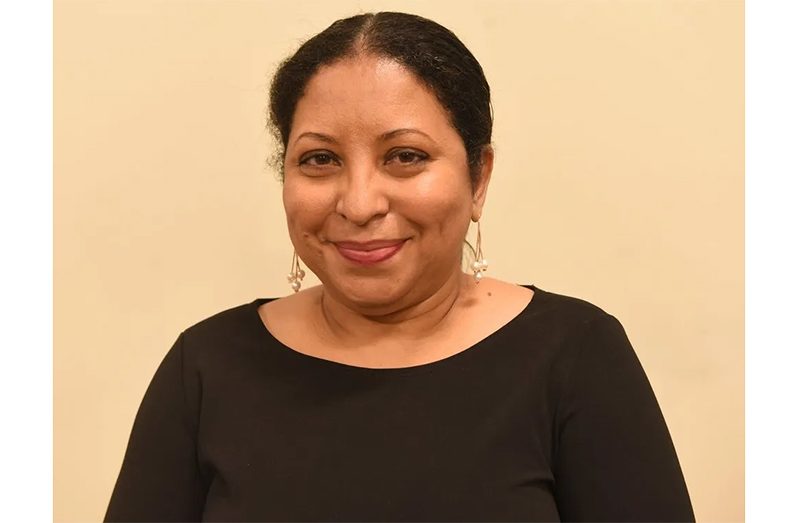– training targets unemployed, school dropouts in becoming construction professionals
By Feona Morrison
VICE Chancellor, Professor Paloma Mohamed-Martin of the University of Guyana (UG) announced last Friday that the institution is preparing to offer professional development courses tailored to the construction industry.
This is a response to the projected need for approximately 9,000 personnel in the nation’s growing construction industry over the next five years.
She disclosed that Virtual Reality (VR) training will be used to provide these one-month and six-month programmes in “very specialised areas”. She stated that a company that provides virtual reality training had given the university a “huge grant” recently.
Contemporary technology is employed in virtual reality training to simulate real-life scenarios and impart vital knowledge and skills. Virtual reality training offers a secure, regulated, economical, and profoundly influential experience. It works well for training in fields that are costly, risky, or difficult to replicate in real life.
Professor Mohamed-Martin stated that people who have dropped out of school, have been out of school, or are unemployed, will be the focus of virtual reality training, noting that it will be utilised to overcome educational challenges.
“So, when you tell them come to UG, their eyes glaze over and they think they are going to die. But they can do this on their phones… a programme which is actually a course that is actually looking like a game. And they can be anywhere learning this. And so, we do one month at a time, and if they can tolerate it, we go upwards…,” she explained.
The Vice Chancellor added: “Virtual reality will allow us to train outside of labs for certain types of processes. So, if you have to learn a process: step one, step two, step three, step four. We can do that. But of course, we still have to put you on to the physical plant at some point because the transferal of these things to real life is a thing…”
Following the development of the programmes’s curriculum, she said that instruction will start at the university’s Tain, Region Six (East Berbice-Corentyne) campus before moving to its Institute of Distance and Continuing Education (IDCE) locations around the nation.
During an event last year, Prime Minister Mark Phillips emphasised that Guyana is experiencing unparalleled growth, resulting in a heightened demand for skilled and semi-skilled workers across various professions, such as welding, carpentry, masonry, plumbing, and excavator operation.
The construction industry has doubled in size over the last two years, said Dr. Natash Gaskin-Peters, Director of the Centre for Local Business Development (CLBD) while presenting the findings of the Guyana Skilled Labour Assessment Study, last Friday.
According to the study, the construction industry will need about 9,000 workers over the next five years. Given the volume of housing and road developments, as well as other infrastructure projects being carried out by the government and the private sector, Gaskin-Peters, an economist, said that the construction industry is developing at the quickest rate in Guyana.
The education system’s inability to keep up with the construction industry’s rapid expansion, the severe scarcity of experienced tradespeople, and the growing demand for qualified engineering experts are some of the major issues facing the industry, as the study highlighted.
According to the director of CLBD, Guyana possesses a labour force of relatively limited size, which may necessitate the importation of labor. Furthermore, the study unveiled a pressing scarcity of truck drivers within the transportation and logistics industry. Significantly, the government is actively working to meet the country’s rising labor demands by engaging with both sectors of the labor market.
“That is to say, employers and potential employers including of course the private sector. But the government is also, of course, itself an employer. And on the supply side, employees and potential employees including recent graduates of schools and tertiary education systems,” Minister of Finance and Public Service, Dr Ashni Singh had explained while dealing with budget-related matters in the National Assembly earlier this month.
When it comes to training for public servants, the minister disclosed that the government has a “reasonably good idea” of what the needs are across a number of sectors.




.png)









